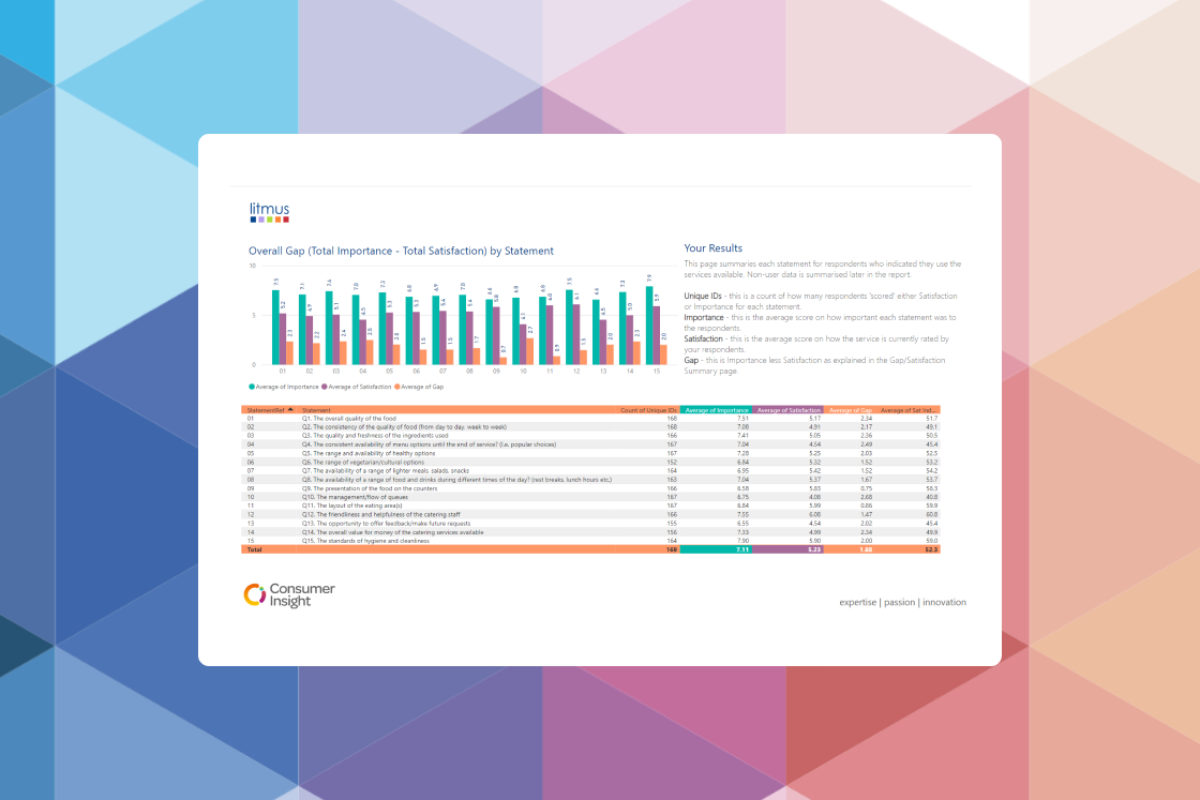With pupil wellbeing now front and centre of the Independent Schools Inspectorate framework, it’s never been more important for independent schools to understand what matters most to their pupils and staff.
Joe Parfitt, our Education Consultancy Director at Litmus, shares his thoughts on how schools can engage more closely with their communities.
“Customer satisfaction surveys have been around a long time. Feedback systems show that schools care and should help them improve the service provided. Unlike in day schools, where the success or otherwise of a catering service can be measured by pupil uptake or sales through the till, boarding schools have captive audiences, and so seeking their views is vital. But do surveys deliver the intelligence needed? Do the outputs help things improve? Was pupil and staff satisfaction increased as a result?
“Food committees and school councils are commonplace. Whilst these forums allow pupils to give school leaders feedback on what works well and what could be better, the views are often those of the most outspoken pupils. Furthermore, individual likes and dislikes (more chips!) are discussed rather than insights into broader service issues and an understanding of whether the opinions are those of the many or just the few. The inspectorate also requires that staff views are heard, and their wellbeing promoted. A more structured approach is needed and one that results in schools prioritising change on matters that have the greatest chance of improving the customer experience.
“Before launching a survey, schools need to understand what issues matter most to their community. Asking questions on relatively trivial matters can be a distraction and diverts focus to areas that will have limited impact on the overall experience. For this reason, focus groups and individual interviews with key stakeholders are a great way to know what you should be asking. You can’t ask everything, as respondents will quickly switch off, so remain focused on the truly important issues.
“The best survey outputs are achieved by measuring satisfaction gaps – the differences between the importance and satisfaction ratings for elements of a service by each respondent. Everyone’s different and each of us has our own priorities and preferences. The skill is determining what actions will have the greatest impact. Respondents are presented with statements such as ‘The quality of the non-meat options’ and they give that statement two scores. Firstly, the importance of the topic / service outlined in the statement and, secondly, how satisfied they are with the delivery of the topic / service. People will typically rate differently on both counts and that is the satisfaction gap.
“These surveys can be repeated at set intervals and be key performance indicators for both in-house and outsourced services. If there is House dining, then surveys can be set up to show performance by House and introduce healthy competition. The data can be cut and sliced to show the opinions of sub-set groups across the school.
“Getting responses is a feat in itself; survey fatigue can be a big problem. If respondents know why they are being asked for feedback, they are more likely to respond. For example, if your school is planning to refurbish the facilities, survey responses can help shape the scheme. Letting them know this and how you’re going to use and share the results will also help. Make it easy for them to participate – a QR code they scan or a link that is texted to them means the survey can be completed from their smart phone, there and then. And we’ve found that rewarding the House with the greatest number of responses with a pizza night can be a great incentive!
“Acting upon well executed and well analysed Consumer Insight programmes can transform services, and not just for catering. Just small changes can make a big difference to pupil and staff contentment on issues that matter most to them.”
You can find further information on our Consumer Insight service here.
Alternatively contact Joe Parfitt, Education Consultancy Director here.
The Litmus Team

